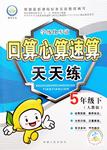阅读理解
Joe Burns is a famous racing-driver. He is being interviewed on a sports programme.
Reporter: You've had a very dangerous life, haven't you, Joe? I mean, you've almost been killed several times, haven't you?
Joe: Yes, I suppose that's right.
Reporter: When was your worst accident?
Joe: It was during the British Grand Prix (英国汽车大赛). I ran into a wall. The car was completely broken and my left leg was broken. Luckily, nobody was killed.
Reporter: Was that the only time you had been… er… close to death?
Joe: No. Once, during the Mexican Grand Prix, two cars in front of me had a bad accident. One of them ran into the other. I drove away to avoid them and hit a fence. My car was badly damaged but luckily I was not hurt.
Reporter: You must enjoy danger. I mean, you wouldn't be a racing-driver if you didn't, would you?
Joe: I don't know about that. I had a very frightening experience not long ago. I was almost frightened to death. I thought I was going to be killed at any moment.
Reporter: Really? When was that? During your last race?
Joe: No, it was on my way to this studio. I had to drive through London during the lunch hour.
(1)The conversation takes place when ________.
[ ]
A.Joe Burns is meeting with a reporter
B.Joe Burns wants a reporter to meet him
C.Joe Burns meets with the reporter by chance
D.Joe Burns is talking with a friend who is a reporter
(2)Joe Burns has had a dangerous life because ________.
[ ]
A.he likes driving too much
B.he is a driver
C.he has a fast car
D.he is racing-driver
(3)Joe had his worst accident ________.
[ ]
A.during the Mexican Grand Prix
B.during the British Grand Prix
C.when he hit a fence
D.when he was on his way to the studio
(4)During their conversation the reporter ________.
[ ]
A.would probably listen carefully and take notes
B.would not take notes
C.would pay no attention to what Joe said
D.had a frightening experience
(5)Joe Burns ________.
[ ]
A.was frightened to drive through London during the lunch hour
B.thought he would be killed by the people
C.was frightened by the people who watched him driving through London
D.thought it frightening to drive through London during the lunch hour

 同步练习河南大学出版社系列答案
同步练习河南大学出版社系列答案 同步练习西南师范大学出版社系列答案
同步练习西南师范大学出版社系列答案 补充习题江苏系列答案
补充习题江苏系列答案 学练快车道口算心算速算天天练系列答案
学练快车道口算心算速算天天练系列答案
 同步练习河南大学出版社系列答案
同步练习河南大学出版社系列答案 同步练习西南师范大学出版社系列答案
同步练习西南师范大学出版社系列答案 补充习题江苏系列答案
补充习题江苏系列答案 学练快车道口算心算速算天天练系列答案
学练快车道口算心算速算天天练系列答案